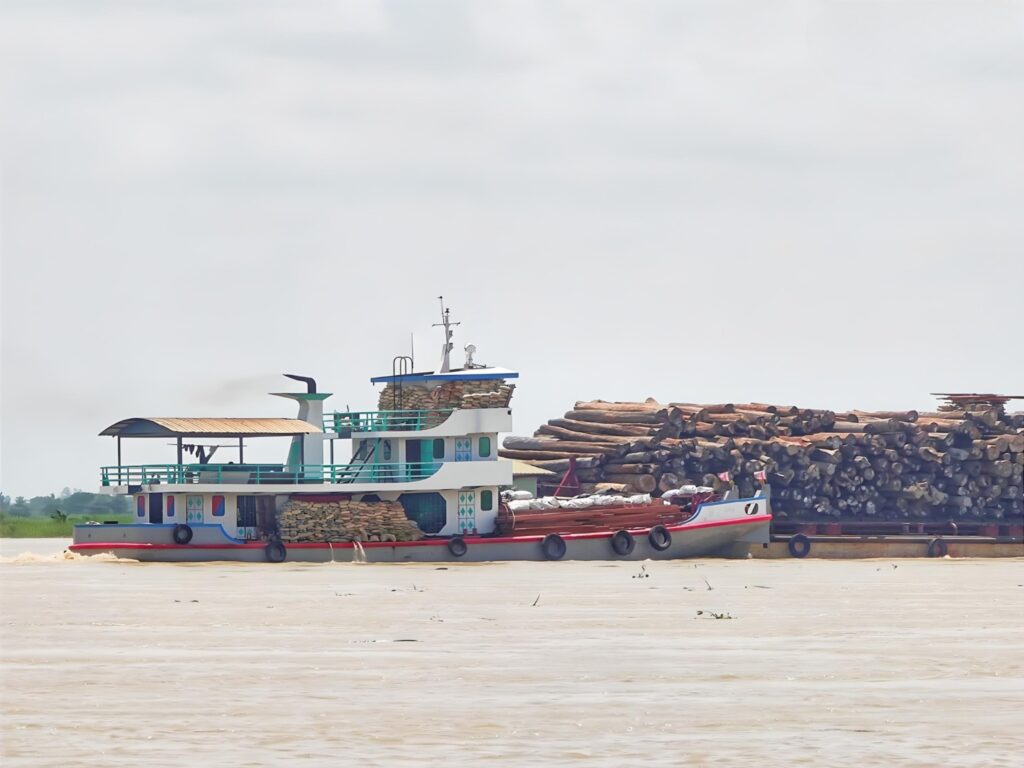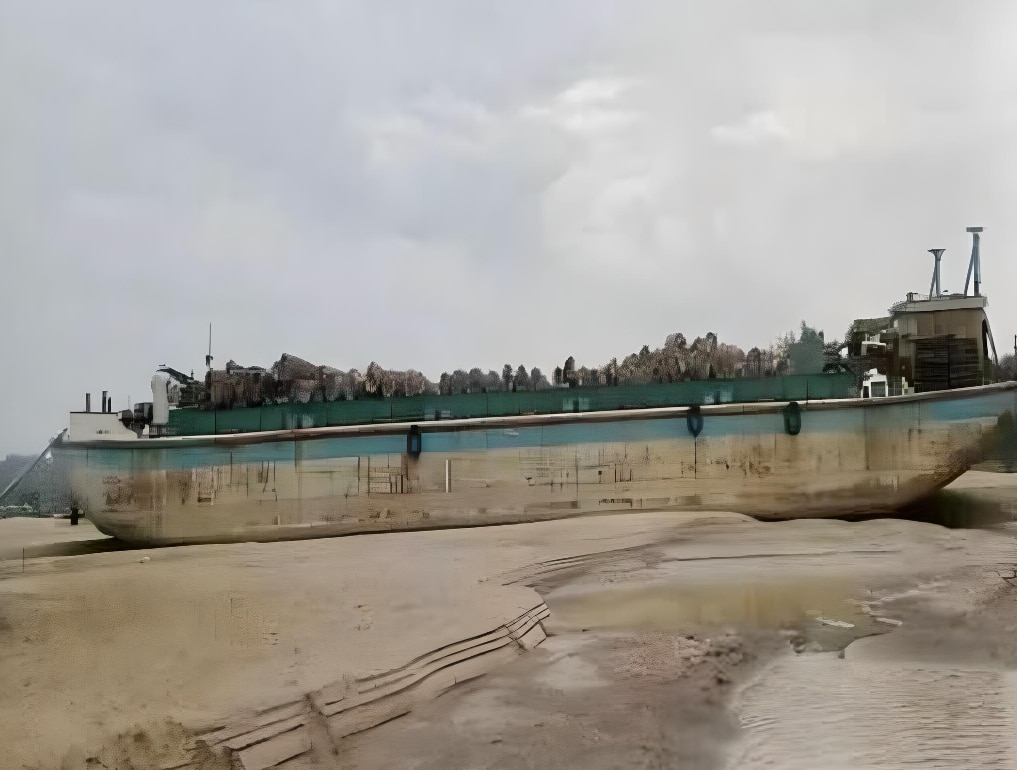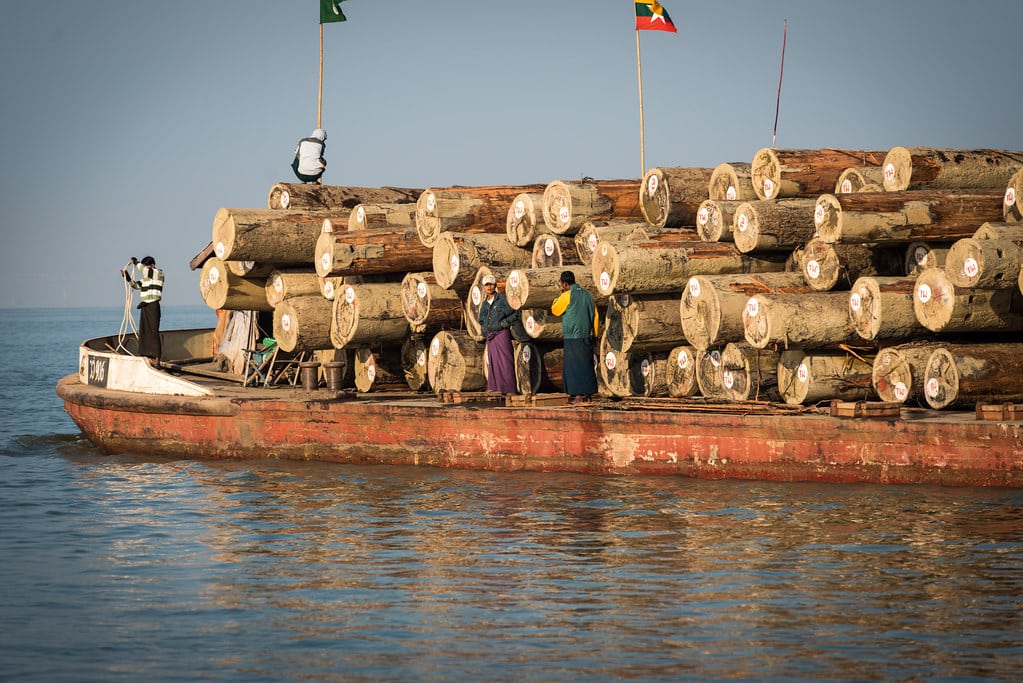The UN has today warned that the ongoing conflict in Myanmar has not only caused a human tragedy but is also an environmental catastrophe.
It comes as junta-controlled Myanmar authorities seized 95.81 tons of illegal timber across the country last week, according to Chinese state media.
From Dec. 18 to Dec. 24, the authorities confiscated 10.45 tons of teak, 37.57 tons of hardwood and 47.78 tons of other types of timber in the country, the report said.
“It is imperative that world leaders help end the crisis in Myanmar by supporting communities to mitigate climate impacts,” the experts said at the outset of the 28th Conference of the Parties to the UN Framework Convention on Climate Change (COP28) in the United Arab Emirates earlier this month.
“Increasingly isolated from the global economy and strapped for cash, the military junta has accelerated the exploitation of Myanmar’s natural resources, including timber, jade, and rare earth minerals, to fund its human rights abuses.”
“Growing resource extraction, often unregulated and facilitated by the military or other armed groups, is degrading the environment, polluting water sources, ravaging forests, and exacerbating climate change risks,” the experts said.
Myanmar, home to a wealth of natural resources and biologically diverse ecosystems, was already one of the most vulnerable countries to climate change when the junta staged an illegal coup and plunged the country into violent conflict in February 2021.
It comes after a surprise offensive by armed groups opposed to the Myanmar junta has blocked strategically vital roads to China, the country’s largest trading partner, with the US reporting that the junta will find it “difficult to take back border infrastructure.”
Wood Central can reveal that attacks occur in the Kachin province, home to an extensive timber trade, with junta forces recently abandoning timber barges filled with teak during resistance attacks.
China has emerged as the junta’s economic lifeline, and according to Myanmar’s Ministry of Commerce, the bilateral trade between April 2022 and half of January 2023 reached up to US$2 trillion.
Myanmar is a crucial part of China’s Belt and Road Initiative, with the UN reporting that China’s proportion of imports from Myanmar has increased by 35% since the military takeover.
Notably, this includes timber and, more specifically, teak – with Maynmar supplying 40% of the world’s supply (Tectona grandis). With the trafficking of raw logs from Myanmar to China has been responsible for the rapid degradation of natural forests.

According to Global Witness, in the year leading up to the coup, more than 80% of Myanmar’s illegally logged timber was reportedly smuggled to China and India, with China accounting for the lion’s share of these flows.
“This, however, is expected to lead to strengthened ties between business communities on both sides of the border, with the province of Yunnan continuing to play its traditionally instrumental role in mediating illicit transactions between China and Myanmar,” Global Witness said.
From the state of Kachin in Myanmar to China’s Yunnan province, on the adjacent side of the border, the illegal timber trade is estimated to be worth more than US $600 million. However, this could be as much as US $1 billion when accounting for Chinese-owned timber interests across the Asia Pacific.
In September, Wood Central revealed that military-backed enterprises, including Myanma Timber Enterprise (MTE), are now using secret bank accounts to bypass financial sanctions with the US, UK, EU and various Western Countries.
These secret bank accounts are linked to 15 foreign banks “in Singapore, Thailand, Japan, India, and China for international transactions, with local banks used for domestic transactions,” according to Irrawaddy, a news website run by Burmese exiles.
Meanwhile, fighting has raged across northern Shan state for two weeks, displacing almost 50,000 people, the US has said, and posing the most serious military challenge to the generals since they seized power in 2021.
The blockage to key transport arteries is already leading to higher market prices and hampering the junta’s ability to send reinforcements to tackle the offensive.
It includes timber, with resistance groups reporting that 100 junta troops carrying five barges of teak destined for southern China came under fire from the Mawlaik People’s Defense Force (PDF).

As a result, the junta has lost control of several vital towns with trade flows to China, which, according to Rochard Horsey, a Senior Advisor for Myanmar at the International Crisis Group, will “negatively impact Myanmar balance of trade, current account and availability of foreign exchange.”
Of more immediate strategic importance is the military’s loss of control of the roads along which it sends troops, analysts say.
“Deploying troops into northern Shan has become increasingly difficult, and the military is now relying on helicopters to send reinforcements into the border area,” said Jason Tower, country director for the Burma program at the United States Institute of Peace.
“While it could launch air strikes to take back positions, it would risk infuriating China by destroying critical infrastructure,” he said.
Like Russia, the Myanmar junta is also cracking down on massive corruption in its critical military posts.
Yesterday, a close ally of Myanmar’s top general was imprisoned for five years on corruption charges, according to state media.
Former Burmese deputy prime minister and minister for home affairs Soe Htut was removed from the ruling State Administration Council, as the junta calls itself, in a September reshuffle.
“He was indicted under relevant sections of laws, and the Court Martial adjudicated his cases and sentenced him to five years imprisonment,” The Global New Light of Myanmar reported.
Soe Htut ordered subordinates to issue passports to companies operating in the country by “inappropriately applying his rank and authority,” the newspaper said.
It added that he “took bribes and failed to supervise the undertakings not aligned with the financial rules and regulations for the staff welfare fund of the Ministry of Home Affairs.”







